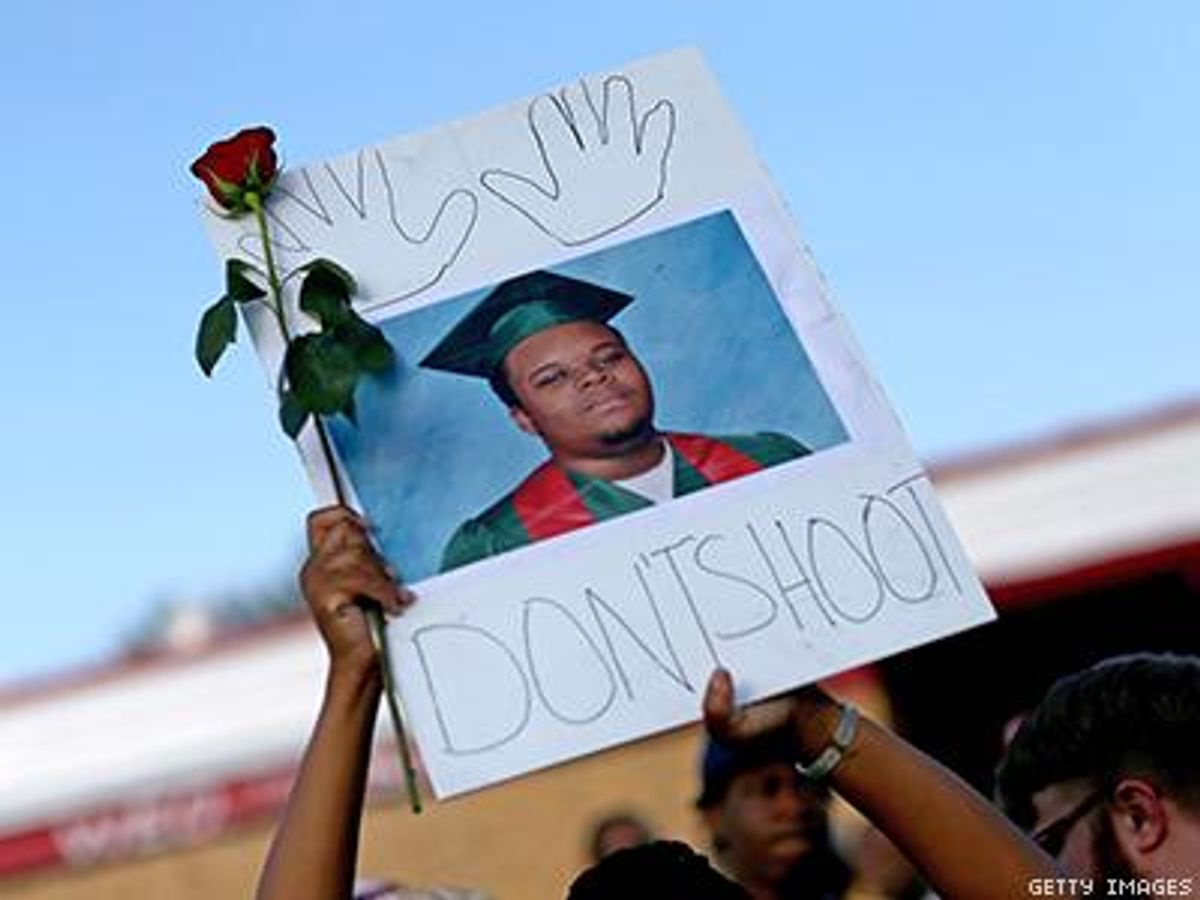In what Jonathan Capehart
says was "the hardest piece I've ever had to write," the out
Washington Post columnist and MSNBC contributor now says he's convinced that the police shooting of Michael Brown last summer in Ferguson, Mo., was justified and the mantra "Hands Up, Don't Shoot" was based on a lie.
In his latest column, published online yesterday, he recounts that after the fatal shooting of Brown by police officer Darren Wilson in the St. Louis suburb last August, he "
decried the next morning the death of yet another unarmed black man at the hands of a white police officer."
Capehart calls the two
recently released reports of the Justice Department's investigations into the killing of Brown and the underlying problems in Ferguson "must-read," and he admits they, in his words, "forced me to deal with two uncomfortable truths: Brown never surrendered with his hands up, and Wilson was justified in shooting Brown."
The report on Ferguson's law enforcement officers confirmed suspicions that police trampled on the constitutional rights of the people, mostly African-Americans, and "put an exclamation point on demonstrators' concerns," he writes. But the DOJ investigation into the shooting of Brown "shows him to be an inappropriate symbol," according to Capehart.
"What DOJ found made me ill," he writes. "Brown fought with the officer and tried to take his gun. And the popular hands-up storyline, which isn't corroborated by ballistic and DNA evidence and multiple witness statements, was perpetuated by Witness 101," whom Capehart identifies as Brown's friend Dorian Johnson.
Capehart summarizes the struggle between the two men over Wilson's gun in painstaking detail, relying on the evidence collected and presented by the DOJ. The report, he says, leaves no doubt that witnesses either lied or didn't see what they originally claimed they did, and those who were considered credible all agreed Brown charged at Wilson.
Despite the cold, hard truth of that confrontation, Capehart writes, "This does not diminish the importance of the real issues unearthed in Ferguson by Brown's death. Nor does it discredit what has become the larger 'Black Lives Matter.'" Brown's killing came at a point last summer when it seemed each week another unarmed black male died or was wounded in a showdown with white police officers, he notes.
"It is imperative that we continue marching for and giving voice to those killed in racially charged incidents at the hands of police and others," Capehart concludes. "But we must never allow ourselves to march under the banner of a false narrative on behalf of someone who would otherwise offend our sense of right and wrong. And when we discover that we have, we must acknowledge it, admit our error and keep on marching. That's what I've done here."













































































